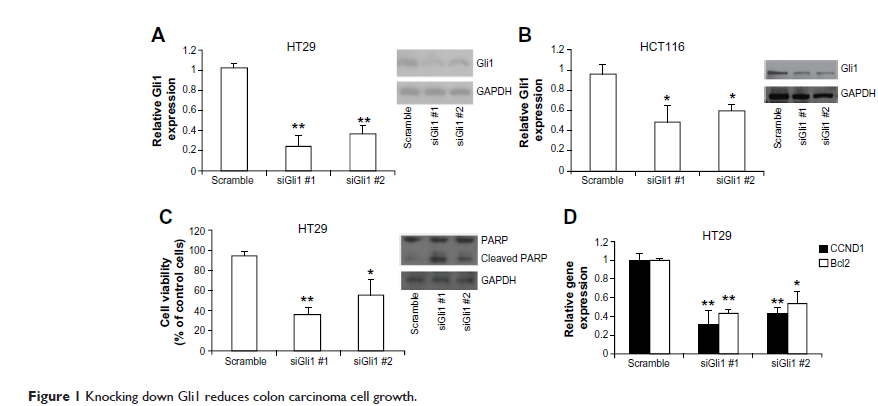109669
论文已发表
注册即可获取德孚的最新动态
IF 收录期刊
- 3.4 Breast Cancer (Dove Med Press)
- 3.2 Clin Epidemiol
- 2.6 Cancer Manag Res
- 2.9 Infect Drug Resist
- 3.7 Clin Interv Aging
- 5.1 Drug Des Dev Ther
- 3.1 Int J Chronic Obstr
- 6.6 Int J Nanomed
- 2.6 Int J Women's Health
- 2.9 Neuropsych Dis Treat
- 2.8 OncoTargets Ther
- 2.0 Patient Prefer Adher
- 2.2 Ther Clin Risk Manag
- 2.5 J Pain Res
- 3.0 Diabet Metab Synd Ob
- 3.2 Psychol Res Behav Ma
- 3.4 Nat Sci Sleep
- 1.8 Pharmgenomics Pers Med
- 2.0 Risk Manag Healthc Policy
- 4.1 J Inflamm Res
- 2.0 Int J Gen Med
- 3.4 J Hepatocell Carcinoma
- 3.0 J Asthma Allergy
- 2.2 Clin Cosmet Investig Dermatol
- 2.4 J Multidiscip Healthc

通过刺猬 Gli1 抑制剂三氧化二砷和磷酸肌醇 3-激酶抑制剂 LY294002 达到对结肠癌细胞生长的协同抑制
Authors Cai X, Yu K, Zhang L, Li Y, Li Q, Yang Z, Shen T, Duan L, Xiong W, Wang W
Published Date April 2015 Volume 2015:8 Pages 877—883
DOI http://dx.doi.org/10.2147/OTT.S71034
Received 12 July 2014, Accepted 4 October 2014, Published 17 April 2015
Abstract: The
Hedgehog (Hh) signaling pathway not only plays important roles in embryogenesis
and adult tissue homeostasis, but also in tumorigenesis. Aberrant Hh pathway
activation has been reported in a variety of malignant tumors including colon
carcinoma. Here, we sought to investigate the regulation of the Hh pathway
transcription factor Gli1 by arsenic trioxide and phosphoinositide 3-kinase
(PI3K) inhibitor LY294002 in colon carcinoma cells. We transfected cells with
siGli1 and observed a significant reduction of Gli1 expression in HCT116 and
HT29 cells, which was confirmed by quantitative real-time polymerase chain
reaction and Western blots. Knocking down endogenous Gli1 reduced colon
carcinoma cell viability through inducing cell apoptosis. Similarly, knocking
down Gli2 using short interfering RNA impaired colon carcinoma cell growth in
vitro. To elucidate the regulation of Gli1 expression, we found that both Gli
inhibitor arsenic trioxide and PI3K inhibitor LY294002 significantly reduced
Gli1 protein expression and colon carcinoma cell proliferation. Arsenic
trioxide treatment also reduced Gli1 downstream target gene expression, such as Bcl2 and CCND1 . More importantly, the
inhibition of Hedgehog-Gli1 by arsenic trioxide showed synergistic anticancer
effect with the PI3K inhibitor LY294002 in colon carcinoma cells. Our findings
suggest that the Hh pathway transcription factor Gli1 is involved in the
regulation of colon carcinoma cell viability. Inhibition of Hedgehog-Gli1 expression
by arsenic trioxide and PI3K inhibitor synergistically reduces colon cancer
cell proliferation, indicating that they could be used as an effective
anti-colon cancer combination therapy.
Keywords: colon carcinoma cell,
Hedgehog pathway, Gli, PI3K, LY294002, arsenic trioxide
